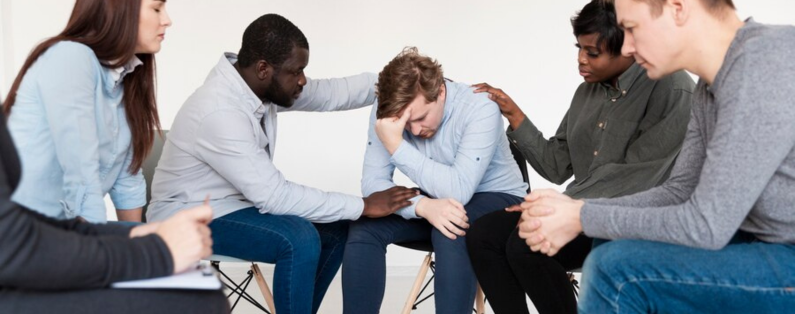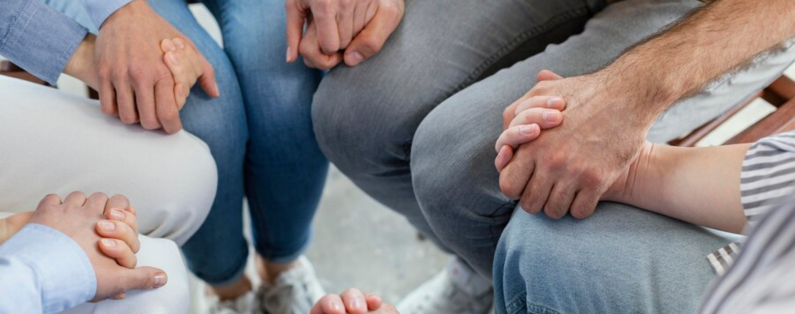OCD Support Groups: Finding Strength in Unity
Obsessive-Compulsive Disorder (OCD) can be an incredibly isolating and distressing condition. The persistent intrusive thoughts and ritualistic behaviors can make individuals feel trapped within their own minds. However, there is a lifeline available for those dealing with OCD - OCD support groups. These groups provide a nurturing environment where individuals can find solace, share experiences, and work towards managing their condition. In this article, we will delve into the details of what OCD support groups are, how they work, where to find one, and who should attend.

What Are OCD Support Groups?
OCD support groups are safe spaces where individuals with Obsessive-Compulsive Disorder, as well as their friends and family, can come together to connect and find support. These groups aim to foster understanding, empathy, and healing through shared experiences and coping strategies.
How Do They Work?
1. Emotional Support: One of the primary functions of OCD support groups is to provide emotional support. Members can express their feelings, fears, and frustrations openly without judgment. This often leads to a sense of relief and a reduction in the sense of isolation that often accompanies OCD.
2. Sharing Experiences: Individuals attending OCD support groups share their personal experiences with the condition. This can help others gain insight into their own struggles and discover that they are not alone in their journey.
3. Learning Coping Strategies: Support groups often feature guest speakers or facilitators who provide information about OCD, treatment options, and coping strategies. This knowledge can empower attendees to better manage their symptoms.
4. Accountability: Members can set goals and share progress in managing their OCD symptoms. This accountability can be motivating and help individuals stay on track with their treatment plans.
5. Building Friendships: Many lasting friendships are formed within OCD support groups. These connections provide a valuable source of ongoing support and understanding.
Where to Find OCD Support Groups
1. Local Mental Health Organizations: Check with your local mental health organizations or clinics. They often host or can direct you to nearby OCD support groups.
2. Online Resources: In today's digital age, there are numerous online OCD support groups and forums. Websites like the International OCD Foundation and Stop My OCD offer valuable resources and directories for finding support groups in your area.
https://iocdf.org/search/support+group
https://stopmyocd.com/ocd-support-group-signup
3. Therapists and Psychiatrists: Mental health professionals are well-connected and can recommend suitable support groups for their patients.
4. Community Centers: Some community centers or churches may host support groups for various mental health conditions, including OCD.
Who Should Attend OCD Support Groups?
OCD support groups are open to a diverse range of individuals:
1. Those with OCD: Individuals diagnosed with OCD can find valuable support and guidance in these groups.
2. Family and Friends: OCD doesn't just affect the individual diagnosed; it can also have a significant impact on their loved ones. Support groups often welcome family and friends seeking to better understand the condition and how to support their loved ones.
3. Individuals in Recovery: Those who have made progress in managing their OCD can provide inspiration and guidance to others in the early stages of their journey.
4. Therapists and Professionals: Mental health professionals specializing in OCD treatment may attend these groups to stay informed about the experiences and needs of their patients.
5. Curious Individuals: Sometimes, people attend OCD support groups out of curiosity or to gain a better understanding of the condition. Their presence can contribute to a more informed and empathetic community.

Conclusion
OCD support groups play a crucial role in the lives of individuals grappling with Obsessive-Compulsive Disorder. These gatherings offer a safe space for emotional support, sharing experiences, learning coping strategies, and building lasting connections. Whether you have OCD, are supporting someone with OCD, or simply want to learn more about the condition, attending an OCD support group can be an enlightening and empowering experience. So, reach out and find an OCD support group near you - you might just find the strength you need in unity.